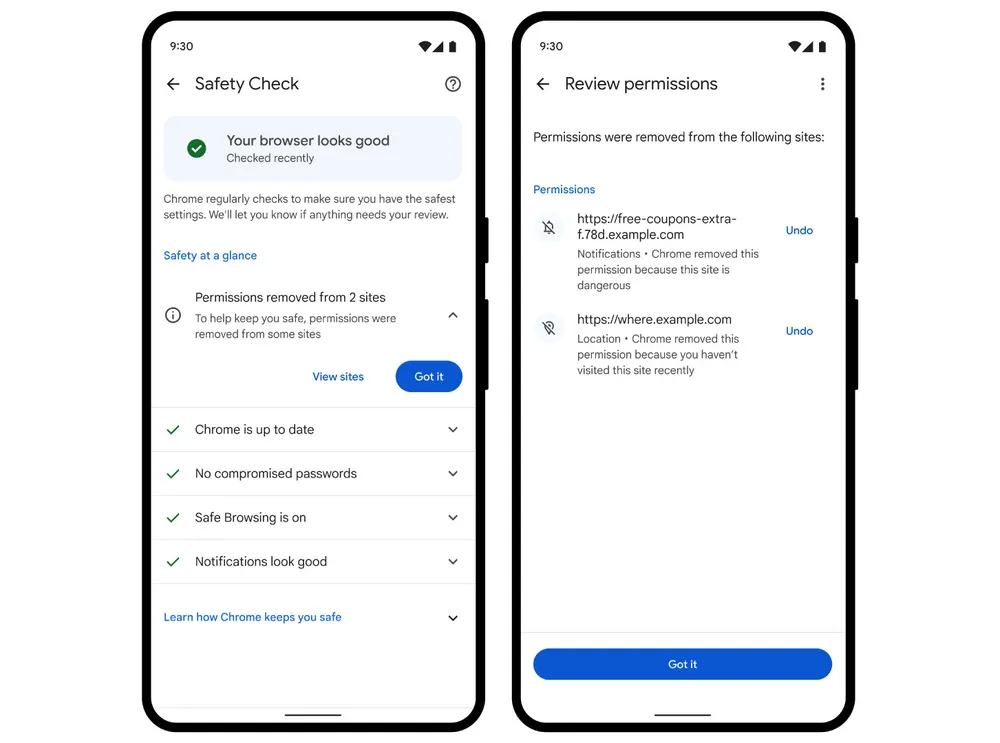
Google has enhanced the Safety Check feature in the Chrome browser, empowering it to autonomously make decisions regarding users’ security. This development aims to automate the process of safeguarding against potential online threats.
Originally introduced in 2020, Safety Check served as a tool for verifying compromised passwords stored in Chrome. It also reminded users to update their browser and warned them about unsafe websites flagged by Google’s Safe Browsing service.
Over the years, the functionality of Safety Check has expanded. It now conducts real-time Safe Browsing checks, covering malicious Chrome extensions as well. Andrew Kamau, Chrome’s product manager, outlined the latest updates in a company blog.
The updated version of Safety Check will operate in the background, automatically shielding users from threats. The feature can revoke unnecessary permissions and unsubscribe from intrusive notifications, while informing users of the actions taken. The system identifies potentially unwanted notifications based on low user engagement on the site and exceeding a certain threshold of daily notifications. If Safe Browsing recognizes the source site as dangerous, suspicious alerts will be automatically canceled.
Safety Check will also remind users to take action if identified security issues remain unresolved. The feature has already been running in the background on desktop versions of Chrome since at least the end of last year. Developers assure that periodic activation on mobile devices does not significantly impact battery life.
In desktop versions of Chrome, Safety Check will alert users to installed extensions that pose security risks, displaying a panel that allows for their removal.
Owners of Pixel devices, and soon other Android devices, will be able to opt out of unwanted push notifications from websites via an “Unsubscribe” button in the notification panel. According to Kamau, a 30% reduction in such notifications has already been observed on Pixel devices thanks to this new feature.
Kamau also highlighted the importance of one-time permissions in Chrome for both Android and desktop versions, which grant users more control over the data shared with websites. Support for one-time permissions was introduced in Chrome 116, released in August 2023. This approach reduces the risk of misuse and enhances privacy.
Other browser manufacturers implement one-time permissions in their own ways. For example, in Safari 16 for desktops, geolocation is set as a one-time permission by default. In Firefox 115, the same applies to geolocation, camera, and microphone access.


